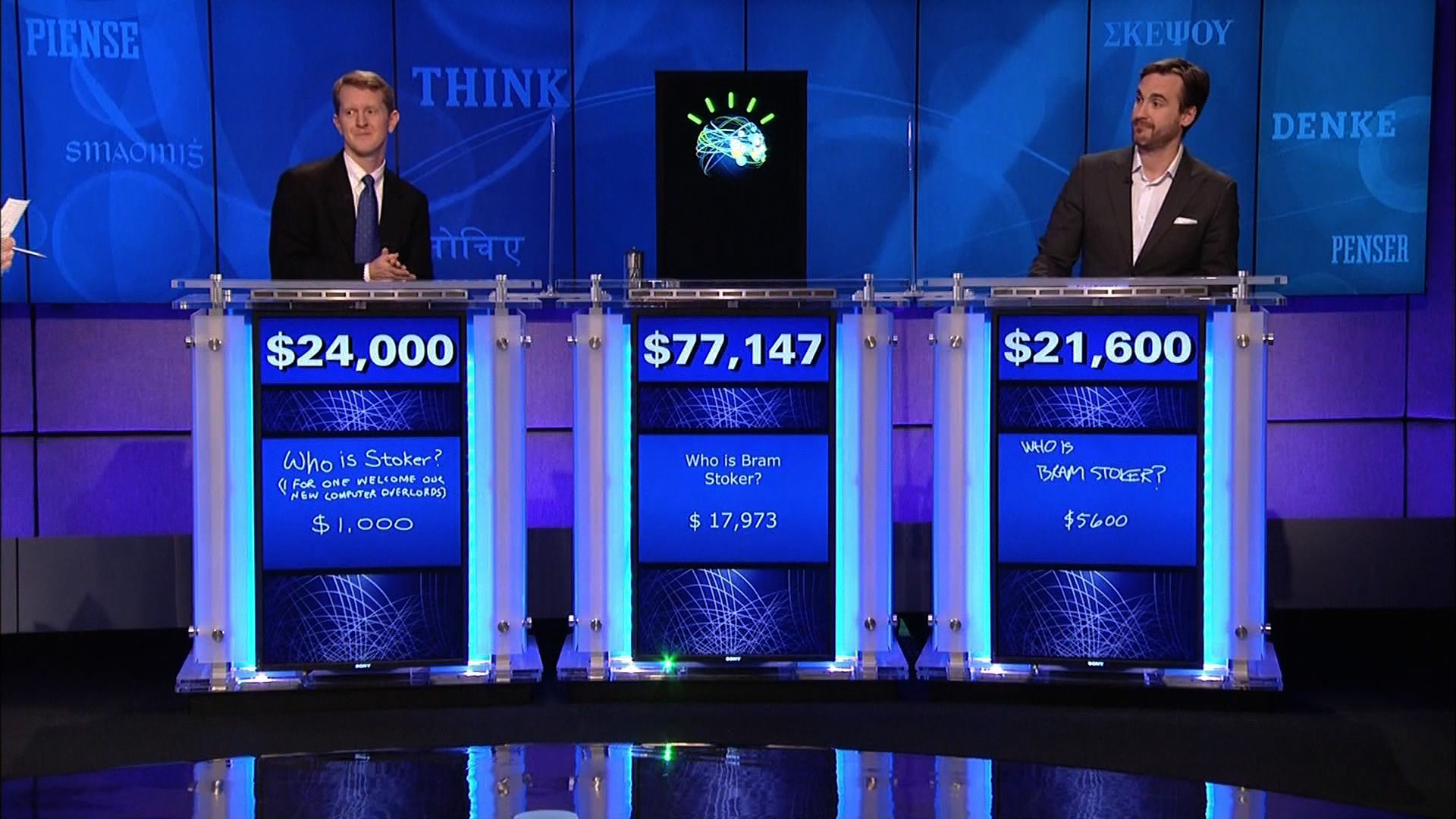
If you've watched TV or walked through an airport over the course of the past 5 years, your probably seen advertisements for what IBM calls a "Smarter Planet." But perhaps because we do not really think about IBM as a consumer business these days, it's not exactly clear what exactly that Smarter Planet is. Thanks to Terry Jones and my Partner, Joel Cutler, I had the opportunity to attend a special IBM event, where they have sneak peak at what is to come. And perhaps it will come as no surprise to you, it begins with Watson (their Jeopardy winning super computer).
Watson is a technology platform for what IBM calls "cognitive computing." Put simply, it allows developers to build applications that use Watson's brain to solve problems, much like they use Amazon's cloud for core infrastructural needs like storage. Since demonstrating the technology's trivia acumen in late 2011, IBM has been working with number of pilot partners to demonstrate what the world can do with augmented intelligence. And at the launch event, the company showcased prototypes of such products. Probably the most viscerally powerful of such was in the medical arena, where IBM has partnered with Memorial Sloan-Kettering to build systems that aid in the both the detection of cancer and the prescription of which specific treatment is appropriate for the individual case in question. In a more recreational use case, Watson will create cooking recipies for users with only the suggestion of a single base ingredient, style of cuisine, or dietary restrictions.
Launching new divisions is not something IBM does lightly. Similar transitions at the company occurred 50-60 years ago with the creation of a division for mainframe technology; in the 1980s around the personal computer; and in the 1990s around "Global Services" - the IBM's consultative practice for Fortune 500 corporations and governments. IBM is in an elite class of technology companies (including Apple, Google, Amazon, and Cisco) for whom $1B in incremental revenue hardly gets their executive team out of bed. They need $10b opportunities (revealing just how hard it is to continue to drive growth).
Fortunately for New York City, in the Watson Group, IBM sees this potential. For the past couple years, a large black glass construction project has been underway in the Astor Place corridor in downtown Manhattan. For anyone familiar with the area, the building is a total visual force, commanding attention and respect. Until yesterday, that building was largely anonymous, without any clear markings of propriety. Today, it is Watson.
In addition to housing their new team in their new downtown fortress, IBM is going to commit $1B of its own capital the developing the Watson Group over the next few years. 1,000 of its 3,000 person IBM Research team will be allocated to developing the technology. And the company will be earmarking $100m in capital for equity investments in start-ups their fledgling Watson developer ecosystem. IBM will also be sponsoring some kind of start-up accelerator in their new space for Watson-based companies.
Fundamentally game-changing innovation is so hard to do as a large company, I'm not sure how successful Watson will be. I do, however, respect the boldness of the vision and welcome the contributions to continue to build the technology ecosystem. It is exactly this sort of fundamental systems research and enterprise software development that we need.